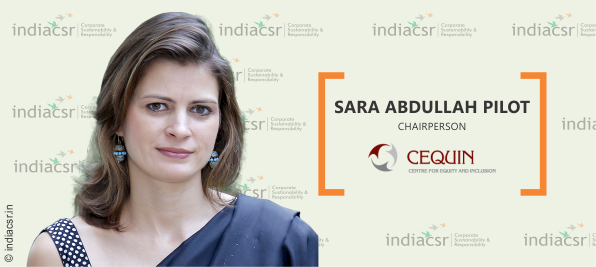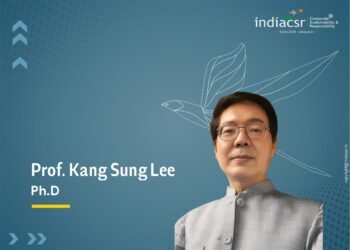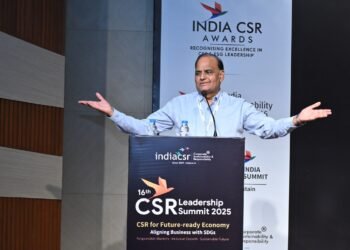Women empowerment is a burning issue which refers to making women independent of their own and give them the liberty to make their own choice. Today, we have women leading the best financial institutions, some ruling countries while others conquering the space, there are also a lot of women who still are deprived of basic human rights. To cater to this issue, CEQUIN, an autonomous center under the umbrella organization of the Jai Jawan Jai Kissan Trust, is majorly contributing to women empowerment in our society
Established in 2009, by Sara Abdullah Pilot and Lora Prabhu, CEQUIN is an NGO that promotes the equal right of women and girls, to lead a violence-free life, develop their capabilities, have ownership and control of resources and participate and be included in decision making. Let’s get to know more with Sara Abdullah Pilot, Chairperson, CEQUIN about the initiatives they have taken so far in the segment below.
What was the cause behind CEQUIN?
CEQUIN is a NGO that works on women and girls’ empowerment. It was founded in 2009 by Sara Abdullah Pilot (Chairperson) and Lora Krishnamurthi Prabu (Director). The vision behind CEQUIN is to build a world where gender equality is the norm, where women and men can reach their potential and gender relations are based on respect, nurturing and peace. CEQUIN’s goal is the empowerment of women and girls to lead a life of dignity, exercise their choices and develop their capacities.
Why have you chosen Football as a platform?
Football is one of the most popular sports in the world. A football and open space is all that is required to play the game, making it an accessible sport for all. In the context of women’s empowerment it has a special significance as it has culturally been seen as a ‘male domain’, with masculine attributes emanating from it. Girls in most societies have been socialised to restrict themselves to ‘soft’ indoor play activities, which subtly groom them for their predefined domestic roles in future.
Football for girls is important because it brings girls out of their homes, enables them to claim public spaces, helps shatter gender stereotypes, increases mobility and self-confidence, expands social networks, builds leadership, agency and skills sets while significantly improving health. The outcomes for girls’ engagement in football are reduced school drop-out rates, delayed marriage and childbirth, enhanced aspirations and employability, to name just a few.
The visual power of girls claiming public parks and playing football at par with their male counterparts has a long term cascading impact of social mind sets, while engendering public spaces and changing the narrative in favour of gender equity.
What are the initiatives you have taken for empowering women?
CEQUIN has run several successful programmes in partnership with diverse stakeholders. Using innovative and strategic interventions has resulted in CEQUIN augmenting its impact for effective results.
We have engaged in policy advocacy at the highest level, having served in various committees, including membership of the working group on women’s empowerment for the 12th Five Year Plan of the Government of India. We have impacted over 3.2 lakhs of people (mainly women and girls) since we started our activities in 2009.
In this process of women’s empowerment, not only do we work with adolescent girls and women but we also work with other stakeholders such as men and boys, local community and institutions.
Give us a brief introduction of your initiative, “Kickstart Equality’ and how it’s making a difference in the lives of women associated with it.
Since 2011, CEQUIN has used football as a tool for adolescent girls’ empowerment, promoting the game amongst girls from vulnerable communities by providing free coaching to them. Starting off with a small group of girls from Jamia Nagar, Delhi, today we are working with girls from vulnerable communities across Delhi and Haryana.
Kickstart Equality is a graded inclusive football programme for all age groups, which has led to positive outcomes for girls such as retention in school, more girls opting for careers/livelihoods, enhanced confidence, decision making and leadership qualities, increased outdoor activity and mobility, better social networks/awareness, health and well-being focus, delayed marriage of girls, improved gender norms and reduction of gender discrimination, parent buy-in and support and access to community.
Anne’s story beautifully depicts the change that our project, “Kickstart Equality” has brought about:
Anne joined CEQUIN at the young age of 13 years when she enrolled onto our Kickstart Equality Programme. There was a lot of resistance from her family, especially her brothers, relatives and community and she would often have to sneak out of her home to come for football practices. When she first came to us, Anne was a shy girl, who was unfit and physically very weak and had no access to public spaces such as public parks.
Slowly and gradually, her football skills started skyrocketing, leading to an improved confidence level, fitness and stamina.
Our Kickstart Equality programme enabled Anne to be selected as a member of the football team representing India at the Homeless World Cup in Oslo, Norway in 2016. In 2018 she lead a team of CEQUIN football players on a learning visit to the US.
She has won the ‘best referee award’ in Mumbai and been invited to come onboard as a coach and selector for Football Delhi. Anne has given back to her community by opening her own NGO ‘Fairy Fari Foundation’, which she runs with her sister, educating children for free and teaching them football.
Who are the other key people/stakeholders associated with CEQUIN?
For our multiple interventions in Delhi and Haryana, we have been associated with United Nations Development Programme (UNDP), United Nations Food and Population Trust, (UNFPA), Government of NCT Delhi ,Australian High Commission, Master Choa Kok Sui (MCKS Trust), Aston Villa-UK, DSP BlackRock Mutual Funds, Jamia Millia Islamia, All India Football Federation (AIFF), FIFA, Ministry of Netherlands, British Council, Premier League, BSES, Hero Moto Corp Pvt Ltd, to name a few.
What are the kind of projects that CEQUIN has undertaken and is there any project in the pipeline?
We work on five thematic areas- Addressing Gender Based Violence, building leadership, promoting education, facilitating economic empowerment, enhancing health and wellbeing.
We have 4 key programmes:
Kickstart Equality
Mardo Wali Baat- CEQUIN has been worked closely with men and boys and had partnered with the cricket team Delhi Daredevils in 2009 in a unique campaign called ‘Respect Women Respect Delhi’ and in 2015 embarked on the ‘Mardo Wali Baat’ campaign. We engage with men and boys by conducting gender sensitisation trainings, leadership workshops, public service messaging, working closely with media and encouraging them to engage with public on topics such as the importance of sharing the workload, ending sexual harassment of women and girls, gender equality etc.
Through this intervention our goal has been to create a cadre of sensitised boys and men who will challenge stereotypes, facilitate a positive environment for women and girl’s empowerment and gender equity and become sensitised leaders raising their voices and advocating for equality of women and girls.
Badhte Kadam – Since 2009, CEQUIN has been identifying and mobilizing out of school children in community, engaging with their parents and working on mainstreaming and retaining them in school. We have also been focusing on generating awareness about importance of career amongst adolescents and young women, both in and out of school. We’ve been running various vocational training courses such as cutting and tailoring and art & craft. Furthermore, in response to the lack of lucrative livelihood opportunities for women in Jamia such as small enterprises and businesses, CEQUIN started using crafts as an income generator for these women and created an identity for them. CEQUIN Craft (CC) was set up in 2011.
Through this intervention our goal has been to focus on the importance of education, school retention, further education and skill development as tools for creating career aspirations and ultimately financial independence.
Women’s Resource Centre– CEQUIN opened its gender resource centre in Jamia Nagar and this intervention focuses on increasing awareness generation on violence against women and girls (VAWG) and helps CEQUIN build community trust and buy in.






















